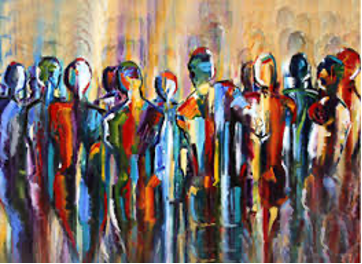
“When I See You or other African Americans, I See MORE Than Color!” …In Other Words
Our last blog entitled, “When I See You I Don’t See Color” ended with: “So, after reading this, I hope that if nothing else, the next time you hear or are tempted to say to someone, “When I see you I don’t see your color,” you’ll stop and consider what you might be conveying to the man or woman who is standing before you and then ponder what you’re really hoping to say to them and take the time to convey those thoughts instead.” As a follow up to that blog, here are some additional thoughts about what some of those thoughts might be that you’re trying to convey and how to convey them in ways that are heartfelt. As we consider how to say to someone, “When I see you (or other persons of color), I see MORE than color,” what OTHER things might be valuable and impactful to convey…things that will deepen relationship AND make strides towards the work of racial reconciliation and healing? Here are some thoughts about that.

When I see you, I see an individual made by God, one made in the image of God. I see a person who has hopes and dreams, and the ability to care, create, and love; the skill to contribute; the heart to forgive; the desire to serve and make our society a better place for all people no matter their color. Even as I see the opportunity for relationship, I am mindful of difficult but true realities in terms of how some people who look like you are treated as ‘less than.’ I recognize the impact of prejudice, racism and the inequities that people who look like you face every day.
I recognize my responsibility as a fellow child of God, a fellow human, a fellow citizen to actively seek to find relationship and common ground by acknowledging that my color does not define my humanity…nor does your color define your humanity. As I seek to treat you with respect and as an equal, I am willing to learn more about the situation that you face, and I am willing to fight against the inequities in our society that too often affront people like you in both your personal interactions and in those life sustaining societal institutions and systems that for too long have preserved inequity. Let’s dare to engage in the ‘hard work’ together – the type of work that will take our country to a place and time when race is recognized as a social construct WE MADE rather than a biological one. We will both know this work has ended successfully when the only thing that really matters is the content of our character and not the color of our skin.